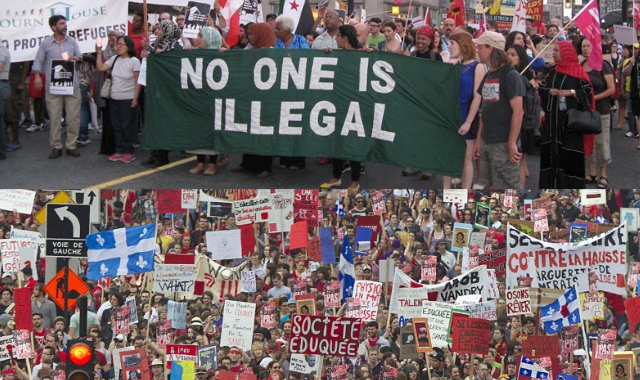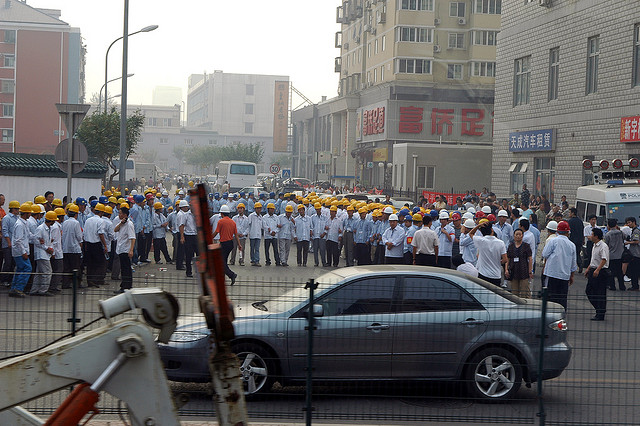There’s lots of talk about “good jobs” these days. At the same time, the expectations for what makes work not only “good” but even a “job” keep falling. It’s hard to fight for better (and less) work in light of decades of defeat for workers as an organized force, years of lingering post-crisis fallout and constant reminders that neighbours, robots, migrants…everyone is coming for whatever job you may have left (I have an article about this last bit in the upcoming issue of Briarpatch).
In a world of part-timers, permatemps, temporary migrants, contractors, sub-contractors, Uber “partners”, Taskrabbits and many others unemployed, the good job means something different than it did several decades ago. The white and male world of the “Golden Age” job is not yet gone but continues to be aggressively dismantled. We should be wary of misplaced nostalgia for the past or magic policy bullets that elide transformations.
Despite this, struggles over how work is organized remain central to how social life is organized. So even as the engine of job crapification makes its way through the world of work, we should be ready to demand more when the conditions are ripe. Progress in making jobs worse has been accompanied by continued technological change that could be making work shorter, easier, better-rewarded at the very least – at best, building conditions to transform social relations.
These scribblings are occasioned by a request to submit a micro (100 to 200-word) proposal for a local conference on the topic of creating good jobs in British Columbia. In truth we need thousands of words to assess our weaknesses, our strengths, our tactics and our strategies; in short, how to organize. I cannot pretend to know concrete demands that energies can coalesce around, whether locally or broadly. Demands are born out of organization.

